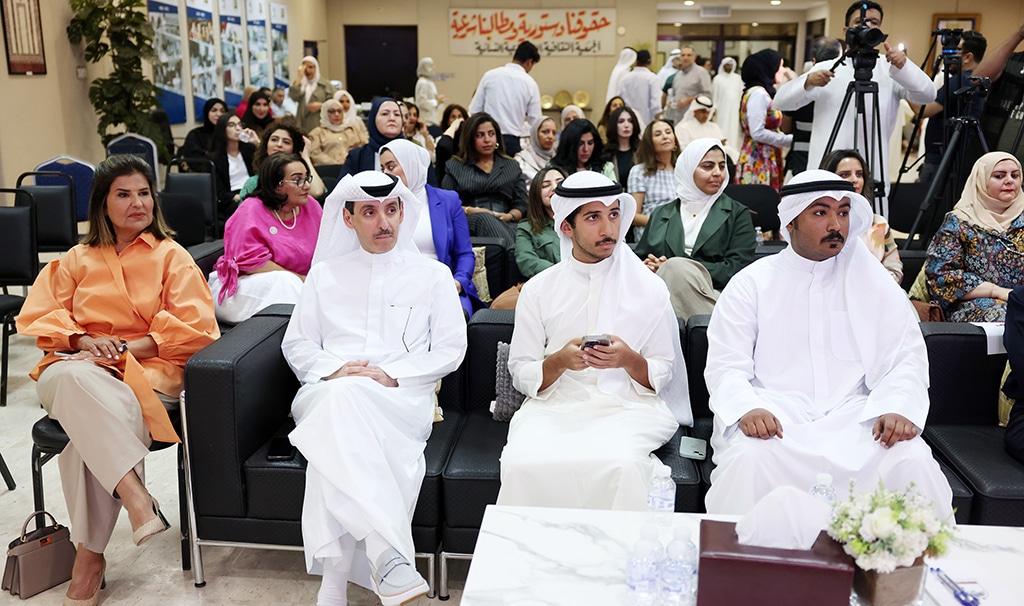By Ghadeer Ghloum
KUWAIT: The Festival of Civil and Student Forces Public Speaking addressed the pressing challenges facing Kuwait today, with the most significant concern being the deterioration of the education system.
The event witnessed the active participation of various public benefit associations, including but not limited to the Cultural and Social Women’s Association, Kuwaiti Socialists Association, Kuwaiti Graduates Association, Kuwaiti Association for Defending Public Funds, Kuwaiti Information Security Association, Kuwaiti Transparency Association, Kuwaiti Lawyers Association, Kuwaiti Economic Association, Sultan Educational Association, Kuwaiti Association for Education Quality, National Association for Child Protection, Kuwaiti Association for Learning Differences, Kuwaiti Association for Disability Issues, Kuwaiti Association for Supporting Inventors, Kuwaiti Blind Society, Hospital Child Care Association, Kuwaiti Writers’ Association, National Association for Family Security (Rowasi), Kuwaiti Association for Media and Communication, Soroptimist International Kuwait for Community Development, Developmental Entrepreneurship Association and the Kuwaiti Association for Educational System Development.
Additionally, there were collaborative entities present at the event, including the Private Schools Union, Democratic Center List and Kuwaiti Democratic Youth Union. Their collective presence underscores the strength and awareness of civil society, individuals and students who share concerns about their future. Together, they have united to oppose decisions driven by political motivations, emphasizing the crucial need to shield education from any form of political interference. During the session, Abdullah Al-Radwan, President of the Kuwaiti Society Community Council, underscored the significance of education in Kuwait’s history.
He acknowledged that Kuwait’s education system was once exemplary, benefiting from substantial funding that contributed to its excellence. However, he lamented that the introduction of extremist ideologies into education, along with changes in curricula and the recruitment of unqualified teachers, led to the decline of the education system. He expressed his belief that recent decisions affecting education were inadequately studied and urged the values committee to pay attention to the declining educational standards, curriculum changes, the diminishing value of certificates and the preservation of national identity.
Moreover, he questioned the timing of these decisions, which coincided with chaos in students’ schedules and arrangements. Radwan criticized gender segregation measures, highlighting the inconsistency in their application and the financial burden they impose on the state. He questioned the benefit of segregating genders in certain contexts while allowing interaction in others.
Ghada Al-Khalaf, representing the Education Campaign, began by emphasizing that a nation’s foundation lies in its people, starting with a robust education system and healthcare. Thus, education is deemed fundamental for national development and should remain free from unwarranted political or parliamentary interference.
Khalaf stressed the importance of preserving the quality and flexibility of education, emphasizing the need to combat partisanship and discrimination in educational policies. She aspired for the state to formulate clear and inclusive strategies for education that benefit all segments of society. To achieve this, she urged against political interventions in education and called for stability in educational policies.
.jpg)

